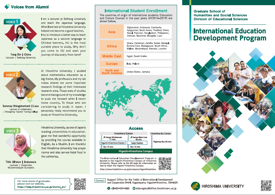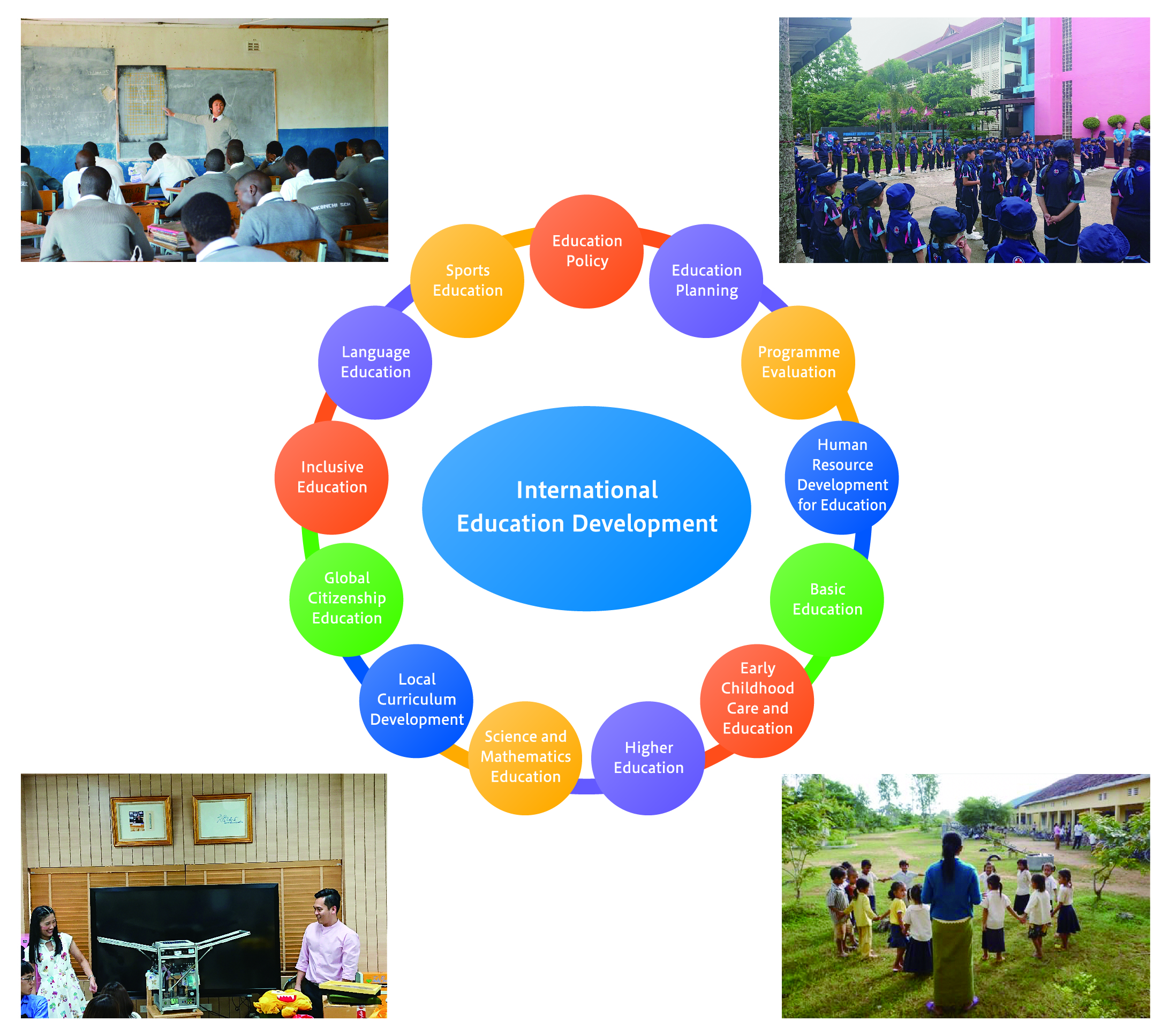Master’s program offers a wide range of courses and seminars of education research in Asia and African regions, in pursuit of its ultimate goal of realizing quality lifelong learning society and sustainable educational development in developing countries. Research areas covered in the program include Education Policy, Education Planning, Programme Evaluation, Human Resource Development for Education, Basic Education, Early Childhood Care and Education, Local Curriculum Development, Global Citizenship Education, Science and Mathematics Education, Higher Education, Inclusive Education, Language Education, and Sports Pedagogy.
Doctoral program aims to further develop the research, and lead the edge of teaching and research activities in educational development with due respect to the local contexts of the country. Moreover, the program aims to cultivate ability to conduct collaborative problem solving through international cooperation with global perspectives.
The medium of instruction of the program is basically English.

Program’s Website is here.

Click to view
Research / Staff
Admission
Class
Some classes are open biennially.
(Japanese) Master's course
Doctoral course
For English, please refer to the syllabus:
Master's course
Doctoral course
HU/JICA Collaborative JOCV Zambia Education Program
The Hiroshima University (HU) and Japan International Cooperation Agency (JICA) has collaborated to organize Japan Overseas Cooperation Volunteers (JOCV) Zambia Education Program since 2002. In the program, students are dispatched to Zambia as JOCV, and teach mathematics or science at local school of either junior or senior secondary level. They also conduct field research as students of HU. The program aims at integrating practice and research in international educational development, seeking to develop professionals for international cooperation in education. So far, the graduates of the program are actively playing their parts at schools, development agencies, research institutions, private companies, etc. Students who enter HU spend their first 6 to 12 months studying theory of international cooperation at the university. Then, they are dispatched to Zambia for two years. During their stay in the country, their supervisors of the university provide advises with them by email. After returning to Japan from Zambia, students spend another 6 to 12 months writing a master thesis based on their field research. Thirty six students have finished the program since 2002.
For more details, go to the program website (Japanese).


 Home
Home


